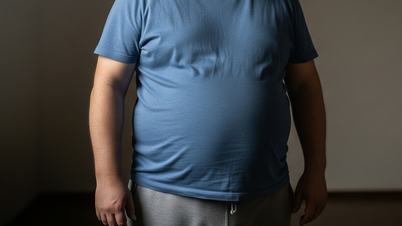Chronic stress causes weight gain in the following ways:
Increased appetite
Stress increases levels of ghrelin, the hormone that makes us feel hungry. Therefore, it stimulates appetite and makes us eat more foods high in sugar and fat, according to US News & World Report .

Prolonged stress will stimulate appetite, cause the body to eat more and lead to weight gain.
These foods increase the neurotransmitter serotonin in the brain. Serotonin helps to improve mood and actually reduce stress. However, this effect is short-lived and then leads to high blood sugar and a calorie surplus. The result is weight gain.
Easy to accumulate excess fat
Insulin is a hormone that helps glucose to be absorbed into cells. Therefore, insulin plays an important role in regulating blood sugar. However, if we are under prolonged stress, insulin cannot effectively transport glucose into cells. Excess sugar in the blood will be stored as fat and cause weight gain.
Not only that, many research evidences show that prolonged stress will cause the accumulation of many inflammatory compounds in the body, damage cells and reduce the ability to secrete insulin hormone. This condition will lead to type 2 diabetes.
Insomnia

Lack of sleep contributes to stress, stress further contributes to lack of sleep and creates a vicious cycle.
Cortisol is not just a stress hormone, it also regulates many other aspects of health. Moderate levels of cortisol help you stay alert and focused. However, too high levels can cause difficulty falling asleep and disrupt sleep.
This eventually leads to lack of sleep and fatigue. Lack of sleep contributes to stress, stress further contributes to lack of sleep and creates a vicious cycle. The result is that we crave food and eat a lot, leading to weight gain.
Impact on exercise performance
Stress causes lack of sleep and leads to fatigue. This state of fatigue makes us not want to exercise , and even if we do exercise, the effectiveness is significantly reduced.
Because we are tired, we do not move much, leading to a decrease in the amount of calories burned. In addition, stress stimulates us to eat more, especially foods high in sugar and fat. These effects together can cause uncontrolled weight gain.
To reduce stress, in addition to having a healthy diet, people need to sleep at least 7 hours/night. Exercise moderately because exercise will help reduce stress hormones. Some stress reduction methods such as meditation and yoga are also very useful, according to US News & World Report.
Source link




































































































Comment (0)